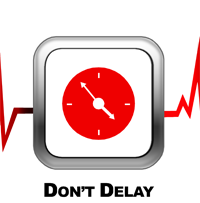- HubPages»
- Health»
- Mental Health»
- Mental Health Self-Help
Procrastination - Why We Procrastinate
Procrastinators
Are You A Procrastinator?
Procrastinators

Procrastination- When We Get In Our Own Way
Procrastination is a form of self sabotage. We hinder ourselves by putting obstacles in the way of accomplishing things. People who procrastinate hurt themselves. When people make procrastination a major part of their lives, it causes dysfunction, missed opportunities, lost money, clutter, and cause stress by waiting until the last minute if they do ever get around to doing it. They squander resources within themselves, with time, with money, with creativity.
Procrastinators love to make excuses. They prefer to make time the problem, or the ability to carry out the project to completion. Procrastination is thought to be a learned response to authoritarian parenting style. Sometimes it is a way to rebel. Sometimes it is a form of self regulation that did not fully develop under a strict and controlling parent. Procrastinators use avoidant coping skills. Procrastinators tell themselves untruths like they will feel more like doing it tomorrow. But when tomorrow comes they don’t do it either.
Types of Procrastinators
Procrastinators seek distractions consciously and unconsciously. In this digital age it is easy to get distracted by our emails, and surfing the internet, and there are so many other things that take our attention away from the tasks at hand. Often procrastinators fear failure.
There are several different types of procrastinators:
-
thrill seekers - wait until the last minute and gain a euphoric feeling
-
avoidant people - fear failure or fear success and are overly concerned with what other people think of them. Their irrational thinking leads them to believe that they would prefer other people think they lack the effort rather than the ability.
-
Indecives - can’t make decisons to avoid the responsibility of the outcome.
Studies have shown that college students who procrastinated had more colds, flu, and stomach viruses than those who did not procrastinate. Many procrastinators have insomnia. They have difficulty working as a team and in relationships and cause resentment in others.
Everyone procrastinates about some things sometimes. When it interferes with relationships, and adds stress and anxiety there are many adverse effects. Procrastination that negatively affects many aspects of a person’s life needs to be addressed in order to have a more fulfilling and happier existence. Procrastinators respond well to cognitive behavioral therapy (CBT) to help change their thinking.
People who procrastinate are overly optimistic about their ability to complete their work at hand. They make themselves feel as though they have everything under control so there is no need to even start the project today. As time gets too close, they tell themselves they work well under pressure. In reality, the procrastinator has lost their freedom because they have no more choices in order to complete the tasks. Generally their work is not their best but they feel a sense of reward for getting it done despite their own obstacles and so they repeat the behavior again and again.
What Procrastinators Do

Procrastinating and Self Esteem
People procrastinate because things to do may be difficult, it make take too much time and seem overwhelming. A person may not feel that they can do the job adequately and be fearful of making mistakes. Procrastinators may be looking to do the job perfectly for fear of their own lack of confidence. Their unrealistic high standards they set for themselves make it difficult to start a task they don’t want to have in mistakes associated with it. People who fear success may also procrastinate so that their work is at substandard levels.
Procrastinators generally share many of the same characteristics such as low self esteem. They may expect a high level of performance despite them feeling inadequate and so they put off doing things until the last minute so they couldn’t possibly meet their high expectations. Procrastinators spend a lot of time justifying how busy they are and that is why they couldn’t get the project done. People procrastinate as an act of defiance. They may use procrastination to be manipulative to control the behavior of other people. Procrastination is often a method of coping with pressures. People who procrastinate often put themselves down and stop themselves from utilizing their best potential. Procrastinators feel like victims. They generally have no insight into the whys of their behaviors.
There are many benefits to getting over procrastination. You actually can get a feeling of strength from being in charge of your life. Procrastination creates a feeling of weakness, uselessness, and helplessness. When you take charge of your life you can feel stronger, more competent, and capable and gain a greater sense of personal freedom.
Procrastinators need to tell themselves that it is not such a hard project. They need to break the task into doable sections, and that it is okay if they make mistakes while doing it. The procrastinator is trying to protect their lack of self confidence.
To get beyond procrastinating you can help yourself understand that mistakes are okay. Procrastination can be a form of passive aggressive behavior as a way to get even with someone. But in reality, the negative effects of procrastination fall back on the procrastinator.
Procrastination
To help yourself get over procrastination, try to look into your hidden felings about completing the project. It is these feelings that will control what you do. Motivate yourself step by step and procrastination goes away little by little. Breaking the task into smaller pieces can make it easier to do. You can work on something for 5 or 10 minutes. This will get you started and give you the option to stop, but in all likelihood you will continue for longer. Tell people your intention so that you will feel pressured to get to the task. A change in environment can change your thinking and motivate you to take on the project.
Understand that this negative behavior gets reinforced the more you procrastinate. It reinforces the habit of not doing, encourages avoidance, and strengthens your own fears.
People who procrastinate tell themselves they can do it tomorrow. They tell themselves they need to have fun first, relax a little, or to clear their mind.
Procrastination is a natural thing to do. Everyone puts off things because they don’t want to do them, because it makes the bottom of the priority list, because it may be a big project and they don’t know where to start. Sometimes we wait to the last minute and that rush of adrenalin when we have completed the task just in time.
All human beings procrastinate, but when does it become a problem? Some things we procrastinate don’t bother us. When the consequences become negative, when the results of what you have done leave you feeling discouraged, when you feel overburdened, when the things you haven’t done start to payoff negative rewards.
perfectionists
Procrastinators and Perfectionists
There is lots of help for procrastinators. Procrastinators are not usually lazy, nor are they hopeless. Procrastination is a habit that you can break. Understanding why you procrastinate and using some helpful strategies can make a big difference in your approach to things you need to get done. No one said it is going to be easy, however. It takes discipline and there are no quick fixes.
Starting with a few simple things that will lead you towards completion is the best way to begin. Praise yourself for the progress you have made. Many procrastinators are self criticizing people, so be kind to yourself by rewarding what you have done, no matter how small it is.
It is important to know and understand yourself better so that you can get a handle on why and when you procrastinate. Knowing why will help you get out of the cycle of delay.
Procrastinate

Reasons People Procrastinate
People procrastinate for many reasons, here a few:
-
we are afraid of failure
-
we are afraid of success
-
we avoid high expectations from ourselves and others
-
procrastination helps us maintain our independence
-
procrastinators gain a sense of control by dictating when they will work on a project
-
some procrasinators want to be rescued - by waiting to the last minute, they look for someone to help them get the task done.
-
some people overburden themselves so by putting things off, more stays on your mind
-
procrastination creates chaos and can keep you away from other people
-
procrastination stops us from taking action
-
procrastination creates anxiety
-
procrastination creates overwhelming feelings
-
procrastination allows us to give up
-
procratinators want to avoid evaluating their completed work.
Many people who are procrastinators are perfectionists. With high expectations, people who are perfectionists may be doubtful if they can meet the standards of perfection. They fool themselves by waiting until the last minute, into believing that they would have done a better job if only they had more time to do it. They mask their belief that they could have excelled if they had the opportunity.
Procrastination usually leads to mediocre work and ensures more likely failure than success.
Avoiding doing something, and choosing to do something we enjoy, or that is easier is an escape from the unpleasantries of the project we are delaying.










